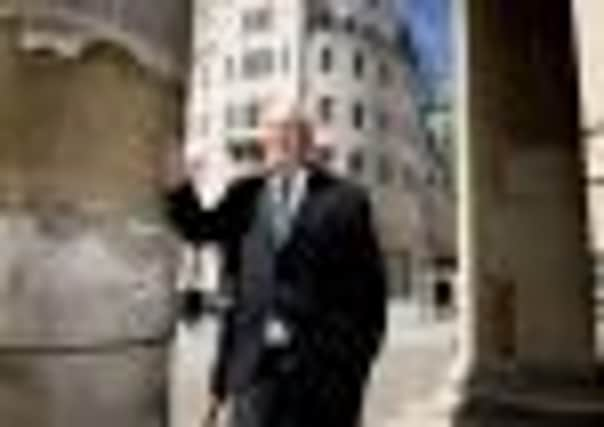Neil McNicholas: Ban bad language from the BBC’s airwaves


Why should it? It’s a history programme – there’s no need for strong language. And so I have wasted my time yet again, given that I refuse to watch anything with such language in it.
But how does the BBC continue to get away with this? I have lodged complaint after complaint on the subject – indeed, the last reply I had from the so-called Trust implied that my name and my opinions were already know to them (Victor Meldrew I am not, but I am a person of principle and persistence on this subject and I’m not ashamed of it), but the Beeb takes absolutely no notice whatsoever. They are all right Jack and it’s the rest of us who are wrong. The arrogance is astounding.
Advertisement
Hide AdAdvertisement
Hide AdIt’s not as if the BBC has a monopoly on the use of strong language in its programmes, but it is a public corporation after all and, as such, it is answerable to the public who are forced, by law, to fund its operation via the annual licence fee. (And there’s a word: licence. We take is as meaning “a permit from an authority to do a particular thing”; the BBC takes its other meaning, “freedom to behave as one wishes”).
As a public corporation, it has a particular obligation of accountability to the public and, in particular, in terms of the moral standards by which it operates.
If it doesn’t like the idea, then do away with the licence fee and let the Beeb compete in the commercial market place as its competitors have to. I suspect the BBC’s hierarchy would like that prospect even less.
There is absolutely no justification whatsoever for the inclusion of strong (ie obscene and offensive) language within its programmes. No-one is offended by the non-use of strong language and, therefore, there is no risk to not including it in programmes, whereas a great many people are offended by such language and, therefore, (again as a publicly-funded corporation) the Beeb has a far greater responsibility and obligation not to broadcast offensive programme content.
Advertisement
Hide AdAdvertisement
Hide AdIf someone were to stand in the street and shout obscenities at the top of their voice, they would be arrested.
And yet if we, in the privacy of our own homes, have chosen to watch the television (in order to take advantage of the licence fee we have had to pay for the so-called privilege) and a broadcaster transmits obscenities into our homes, that isn’t against the law.
Broadcasting (ie shouting) bad language in the street and, therefore, to a very limited audience, is illegal, and yet broadcasting obscenities to the entire country via the airwaves is not?
If the principles of democracy, freedom of speech and freedom of choice mean that broadcasters cannot be made to clean up their acts, why are they not forced to make it quite clear in the programme listings if a programme contains strong language? And why do they not mention it when they advertise programmes in advance?
Advertisement
Hide AdAdvertisement
Hide AdClearly they are afraid of losing potential viewers and so they only mention the strong language content (an admission that it’s offensive) at the very last moment, and even then only because they are required to, in the hope that people will stay tuned because they have waited that long and there’s probably nothing better on elsewhere.
But it is deceitful and dishonest; it inconveniences people and treats them as fools – and, in the case of the BBC, we are paying for the privilege.
The previous governors of the BBC let the standards plummet during their watch and so far the more recently formed BBC Trust, promoting itself as “getting the best out of the BBC for licence fee payers”, doesn’t seem to be doing any better and isn’t going to achieve very much in that regard when it so blatantly and persistently ignores the complaints it receives from the very people who are funding its existence.
One of the first things the new chairman, Lord Patten, should have done was take himself and the Trust members on a tour of the lobby of Broadcasting House where they would have seen the principled declaration of Lord Reith: “This Temple of the Arts and Muses is dedicated to Almighty God. It is (the governors’) prayer that good seed sown may bring forth a good harvest, that all things hostile to peace or purity may be banished from this house.”
Those were the days.
Father Neil McNicholas is a parish priest in Whitby.